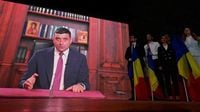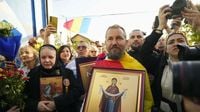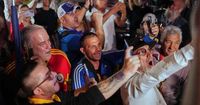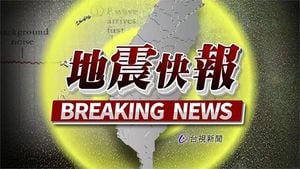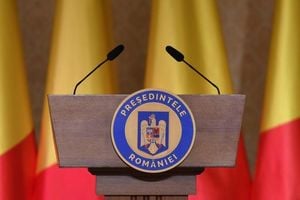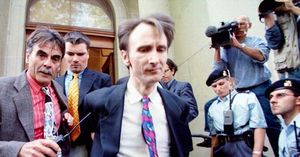In a dramatic turn of events, the first round of Romania's presidential election held on May 4, 2025, saw the ultra-right candidate George Simion emerge as a frontrunner, securing approximately 40 percent of the votes according to the Central Election Office. This election, a rerun of the previously annulled November 2024 election, has set the stage for a runoff on May 18, 2025, where Simion will face off against the liberal-conservative, non-party mayor of Bucharest, Nicusor Dan, who garnered around 21 percent of the votes.
Simion's political ascent has been marked by controversial alliances and a strong nationalist agenda. His party, AUR, advocates for a "Greater Romania," making territorial claims on neighboring Moldova and Ukraine. This nationalist rhetoric, coupled with his stated opposition to military aid for Ukraine, raises significant concerns about Romania's future direction, particularly in light of its strategic position as a NATO and EU member.
In a video message following his victory, Simion declared, "We have made history together today," reflecting a sense of triumph as he prepares for the crucial second round of voting. His rise to prominence has been aided by the exclusion of pro-Russian nationalist Călin Georgescu, who had previously topped the polls in November but was disqualified due to allegations of electoral misconduct.
The political landscape in Romania has been tumultuous, with the annulled elections in November 2024 stemming from accusations of Russian interference, which the Constitutional Court upheld. This led to widespread protests against the annulment, with thousands of Romanians expressing their dissatisfaction with the political status quo.
Simion's campaign was heavily focused on social media, particularly TikTok, to engage with the influential Romanian diaspora and younger voters. His self-identification as a staunch supporter of former U.S. President Donald Trump has further polarized opinions, as he aims to position himself as the first "MAGA President" of Romania, echoing Trump's populist themes.
Despite his significant lead in the first round, analysts caution that Simion's path to the presidency is not guaranteed. Political scientist Sergiu Miscoiu noted that the runoff could be closely contested, especially as many voters from other candidates may rally behind Dan to prevent a far-right presidency.
Dan, the mayor of Bucharest, has emphasized the importance of maintaining Romania's Western orientation, stating, "It is now about whether Romania remains oriented towards the West." His campaign has been characterized by a commitment to reform and integrity, positioning him as a counterbalance to Simion's isolationist tendencies.
Simion's controversial statements have drawn scrutiny, particularly his remarks about wanting to bring Georgescu back into power should he win the presidency. He has suggested potential pathways for this, including a referendum or forming a parliamentary coalition to appoint Georgescu as prime minister.
While Simion claims to reject pro-Russian sentiments, experts remain skeptical. His party's ties to radical right movements and past associations with Russian nationalists have led to a complicated narrative that could affect Romania's foreign policy and its relationships within the EU and NATO.
As the runoff approaches, the stakes are high for Romania, which borders Ukraine and has been a crucial player in the region's security dynamics. The outcome of this election could have far-reaching implications for Romania's political alignment and its role in European affairs.
In summary, the upcoming election on May 18 will not only determine the future leadership of Romania but also set the tone for the nation's political ideology in a rapidly changing geopolitical landscape. With Simion's far-right agenda and Dan's reformist approach, voters will face a critical choice that could define the direction of Romania for years to come.
